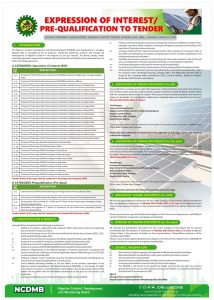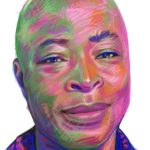The ongoing race for the leadership of the 10th National Assembly reached fever-pitch last week with an announcement by Senate spokesperson, Senator Bashir Ajibola, that the governing All Progressives Congress, APC, would unveil the zoning formula of the party after Ramadan: That is, after Thursday, April 20, 2023.
Amazingly, aspirants have sprung up from five of the six-geo-political zones in the country, regardless of the parliamentary tradition, rules and convention governing the emergence of the majority caucus and the presiding officers of the NASS.
The incumbent Senate President, Ahmad Lawan (Yobe North) comes from the North-East geo-political zone, just as Senator Ali Ndume, (Borno South) and Senator Danjuma Goje, (Gombe Central).
Senator Sani Musa (Niger East) is from the North Central; Jibrin Barau (Kano Central) hails from the North West, as well as Senator Abdul’Aziz Yari (Zamfara West); Senator Orji Kalu, (Abia North), Senators Osita Izunaso (Imo West) Peter Ndubueze (Imo North), and Dave Umahi, (Ebonyi South) all hail from the South-East; Godswill Akpabio (Akwa-Ibom North-West) comes from the South-South.
For obvious reasons, the South-West geo-political zone where President-elect, Ahmed Bola Tinubu, comes from, is conspicuously absent from the list of aspirants.
This same politics applies to the Speakership of the House of Representatives, for which incumbent Speaker, Femi Gbajabiamila, (Surulere I, Federal Constituency, Lagos), has recused himself despite feelers that he is eyeing a return to the position if the position of Chief of Staff (CoS) to the president does not come through for him.
Unlike the Senate, the race for the Speakership has only aspirants from four of the six-geopolitical zones, namely North-Central, North-East, North-West and South-East.
The nine aspirants are: North-Central geo-political zone, Deputy Speaker, Idris Wase (APC, Plateau), Yusuf Gagdi (APC, Plateau) and Tunji Olawuyi (APC, Kwara); North-East – Muktar Betara (APC, Borno); South-East, Ben Kalu (APC, Abia) and North-West are Sada Soli (APC, Katsina), Abubakar Makki (APC, Jigawa), Tajudeen Abbas (APC, Kaduna) and Aminu Jaji (APC, Zamfara).
APC Senator Ajibola’s announcement rests on existing parliamentary rules and convention that the political party with the most legislators is expected to form the majority caucus and produce the presiding officers.
Regardless of the outcome of the supplementary polls conducted Saturday, to fill the remaining eleven senatorial seats, the APC has 50 out of the current 98 members of the Senate. It is distantly followed by the Peoples Democratic Party (PDP) with 29 seats, then the Labour Party (LP) with six, the New Nigerian People’s Party (NNPP) with two; Social Democratic Party (SDP) also with two; the All Progressives Grand Alliance (APGA) and Young Peoples Party (YPP) with one seat each.
The APC also leads in the House of Representatives. It won 162 seats out of the 360 seats, while the PDP won 102 seats.
The LP and NNPP won 34 and 18 seats, respectively, while APGA won four seats.
The SDP and African Democratic Congress (ADC) won two seats each, while the YPP won one seat.
The APC’s decision to determine the zoning formula for choosing NASS leadership got a big boost last week when an inter-party 283–member alliance in the House agreed to respect the majority decision of the APC to choose the Speaker and deputy Speaker.
Under the auspices of the New Forum for a Joint Task for a United, Progressive Nigeria, a group, which claims to have the support of some APC and PDP governors, said it wants a Nigeria that works based on inclusiveness.
Ordinarily, the seven opposition parties would have been able to give the APC a fight for its money if they had agreed to leverage their total numbers of 163 against APC’s 162 in the results of the 325 seats in the House so far declared by the Independent National Electoral Commission (INEC). A breakdown of the declared results showed that APC won 162 seats, while seven opposition parties have a total of 163 seats: PDP has 102; LP, 34; NNPP, 18; APGA, four; ADC, two; SDP two and YPP one.
PRESSURE GROUPS INTENSIFY LOBBYING
In the first scenario, THEWILL learnt that the South-West was struck out of the game because the president-elect hailed from there. That same politics applies to the North-East where the Vice President-elect, Kashim Shettima, comes from. For strategic reasons of inclusion and sharing of positions, the party will overlook the North-East in the zoning formula, according to findings by THEWILL.
The second scenario is to play what a dependable source called the ‘Mathematics game.’ According to this formula, the Senate President’s position, which is number three in the official hierarchy, after the President and Vice President, usually comes from the same zone as the President, applying the North/South divide as formula, regardless of the political party in power, since the dawn of the Fourth Republic in 1999.
Starting with the tenure of the Olusegun Obasanjo Administration from 1999 to 2007, a southerner was at the helm of the Senate. As a matter of fact, all the Senate Presidents during this period, beginning with Evans Enwerem, came from the South. The others were the late Chuba Okadigbo, Adolphus Nwabara, Pius Anyim and Ken Nnamani (all from the South-East).
The short-lived presidency of late President Musa Yar’Adua, from the North, had Senator David Mark (North-Central) as Senate President. He was inherited by Yar’ Adua’s successor, President Goodluck Jonathan. President Muhammadu Buhari in turn repeated the tradition with Dr Bukola Saraki (North-Central) and the incumbent Senate President, Ahmed Lawan (North-East).
Will the incoming President, Bola Tinubu, change this tradition? The source asked and answered, “I doubt it is almost cast in stone, except for the unfortunate death in office of President Yar’Adua, leaving his deputy, Jonathan, to inherit Mark.”
Following this tradition, therefore, THEWILL projects that the South will be favoured to produce the 10th Senate President. With the South-West out of the game by virtue of being the President-elect’s geo-political zone, the two other geo-political zones making up the South are the South-South and the South-East, both of which are favoured to contest the prized ticket.
Furthermore, the North-Central has taken the post of National Chairman of the APC, which is currently occupied by Senator Abdullahi Adamu from Nasarawa State.
This is why the North-West, according to calculation, will most likely be given the House of Peps Speakership slot as compensation for its voting strength during the 2023 polls, the source, who spoke on the condition of anonymity said.
GAME PLAN OF THE SOUTH
The South-South and South-East geo-political zones are favoured to clinch the Senate presidency. The latter has three aspirants, namely Orji Uzor Kalu, Izunaso and the Governor of Ebonyi State, David Umahi.
The general positions being canvassed by the zone rests on two pillars: The prevailing argument by the zone is that they had been denied a shot at the presidency and an attempt did not materialise and so they should be compensated with the Senate presidency. They also argue that the current dispensation is yet to fully integrate the Igbo in governance and finally the number of APC senators from the zone has increased with the 2023 general election. They have a total of six, spread across three of five states of Abia which has one, Ebonyi with three and Imo with two.
On the strength of this arrangement, lobbyists have besieged President-elect Tinubu to make their case.
For the speakership, some of the contestants are said to be pressing the outgoing Speaker, Femi Gbajabiamila, a Tinubu acolyte, to put in a word or two for them with the president-elect, a task he had parried in order to keep his relationship with the contestants and not jeopardise his chances with the party when it comes to playing a key role in the incoming administration.
However, the shortcoming of this zone is the voter strength it returned during the 2023 presidential election. Tinubu, like his closest rival Atiku, secured less than 15 per cent across the five states in the South-East geopolitical zone, leaving LP candidate Peter Obi with between 79 per cent to 87 per cent.
Even the Senate Chief Whip, Orji Kalu, who is one of the major contenders from the zone flaunting his position as a ranking senator, is said to be finding it hard to make his case. According to a party source, the support he gave to Lawan during the July 7, 2022 APC presidential convention, boasting that he would not mind cleaning Aso Villa in a Lawan presidency, still rankles deep with the President-elect. Besides this weakness, Kalu’s rivals are said to have dug up his electoral performance for the party, compared to their own.
“Kalu could only get 6,000 votes for the party during the presidential election while he got 47, 000 for himself at the senatorial contest,” said the source.
Compounding the woes of the South-East is the unwillingness of the trio to present a common front by choosing one among them for the plum job.
This is the biggest advantage that Senator Akpabio has. He is the only contestant from the South-South. Besides, he appears set to get paid for his political display during the party’s presidential primaries when he stepped down for Tinubu after paying glowing tribute to the President-elect’s enviable political track record.
Moreover, unlike the South-East which has produced Senate Presidents in the current political dispensation, the South-South is yet to do so. Senator Akpabio is said to be flaunting his record as a former Minister of Niger Delta, who “successfully concluded the President’s directive on the conduct of forensic audit of the Niger Delta Development Commission, NDDC and repositioned the commission for equitable development of the Niger Delta.
”He also presented to the President-elect the actual figure of 154,000 votes that he polled for the party during the presidential election in his Ikot-Ekpene Senatorial District, compared to the 115,401 votes he got to get elected.”
Compared to the South-East, the South-South had more votes for Tinubu who scored the required minimum 25 per cent in the six states of the geopolitical zone.
Supporting the position of the South to produce the President of the Senate, National Vice Chairman of the APC (North-West), Malam Salihu Lukman, has proposed a plan to keep the North out of the race. That proposal is based on religion. Arguing that the Muslim-Muslim presidential ticket approach of the party needed to be balanced after the polls, he called on northern senators contesting the post to step down for the southern counterparts to allow for the emergence of a Christian Senate President.
According to him, it would be insensitive to have a Muslim Senate president after producing the President and his deputy, who share a similar faith.
Whatever happens, no zone will be left out in the zoning formula of the party as more influential positions are up for grabs. They include the positions of Deputy Senate President, Majority Leader, Deputy Majority Leader, Majority or Chief Whip, Deputy Chief Whip, Minority Leader, Deputy Minority Leader, Minority Whip and Deputy Minority Whip.
Amos Esele is the Acting Editor of THEWILL Newspaper. He has over two decades of experience on the job.






